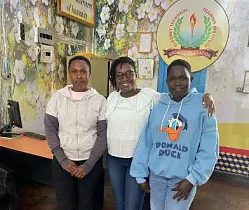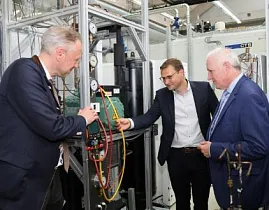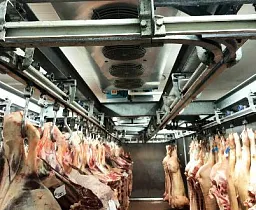February 2021 marks the beginning of yet another international collaboration between Centro Studi Galileo and UN Agencies; in particular, together with UNDP, the United Nations Development Programme, CSG is going to support the Nigerian RAC sector in building its workforce capacity, specifically increasing the knowledge on energy efficiency and energy saving in all practices concerning refrigeration and air conditioning.
Thanks to the elaboration of a dedicated training syllabus, multiple sets of training sessions for national Trainers and Technicians and consulting services provided to the National Ozone Unit, CSG and UNDP are making all the steps in the common direction of improving Nigeria’s refrigeration and air conditioning sector, for the people and the environment’s benefit. A first conference call among UNDP, the NOU and CSG held on February 12th, set the starting date of this brand new and tight collaboration that will positively mark the coming months of 2021.
The main goal of this project is teaching best practices, spreading knowledge on the most important environmental issues (such as the Global Warming Potential and the Ozone depletion), and at the same time giving much relevance to the progressive implementation of alternative and natural refrigerants; being Italy’s Official Training Provide for the EU-funded project “REAL Alternatives 4 LIFE”, Centro Studi Galileo is going to teach Nigerian Trainers and Technicians how to use these new refrigerants and also be energy-efficient.
The frame of the project
The purpose of this specific project is to provide capacity building on the integration of energy efficiency into the RAC Servicing Sector in Nigeria under the direct supervision of the UNDP nature Climate and Energy team and the Country Office and in coordination with the global UNDP team working on the K-CEP Programme, and the National Ozone Office of the Federal Ministry of Environment, Nigeria.
Under the Montreal Protocol, countries agree to comply with the phase-out ODS consumption by deploying a series of technical assistance and industrial conversion projects, at country level, so producing and consuming sectors can abandon the use of these substances. More than 170 countries agreed to amend the Protocol through what was called the “Kigali Amendment”, that establishes specific targets and timetables to phase-down the production and consumption of HFCs. In addition, countries also agreed to begin examining opportunities to enhance the energy efficiency of the appliances and equipment to achieve additional greenhouse gases’ (GHGs) mitigation, while also delivering additional sustainable development benefits such as better air quality, improved public health, improved energy access and energy security.





